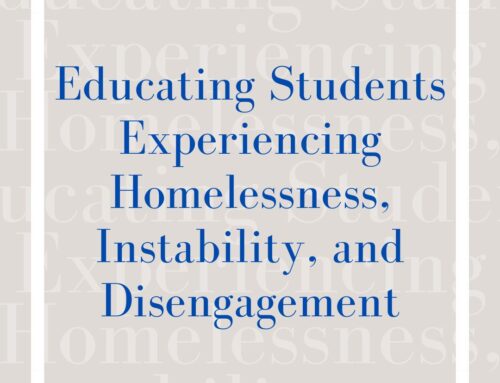By Ruby K Payne.
This is an excerpt – For the full article, see the October 2013 issue of AMLE’s Middle Ground magazine. Visit http://www.amle.org/
What does it mean to be gifted as an adolescent?
First of all, giftedness is very uncomfortable for most adolescents (especially those who are under-resourced) and is often self‐negated. The research indicates that many gifted students will deliberately fail tests, not do homework, etc., so that they don’t appear to be too smart. There’s an axis of relationships/acceptance and achievement. At the middle level (and sometimes into high school as well), relationships and acceptance tend to trump achievement. So many of these students will choose having friends over excelling academically.
Further, adolescents who are gifted can be unusually argumentative with adults, shoot holes in every argument, try extreme behaviors (e.g., see how many hours or days they can go without sleep, how many friends they can get on Facebook, Twitter, etc.), make unusual friends (“I just wanted to know what they were like”), quickly see through superficial or hypocritical adults, and engage in “deviant” social behaviors. Because they can process information so fast, they tend to become easily bored and often think it’s the teacher’s (or other adult’s) duty to keep them engaged rather than their own responsibility.
What often happens in school is that rather than engaging these students in meaningful work, we give them more work, which actually invites rebellion. Sometimes the thinking is that if an adolescent is gifted, then he/she should have perfect scores and perfect work. Typically that isn’t the case for the truly gifted student. High‐achieving perfectionism is what an “overachiever” will tend to manifest rather than a gifted student. Often “overachievers or “teacher pleasers” are misidentified as gifted. Truly gifted students frequently don’t care about pleasing the teacher—that is, unless there’s a strong relationship of mutual respect.
What can we do to support these students?
- Provide alternative assignments for the small handful of students who clearly need a different and creative challenge. For example, rather than the gifted students answering the questions at the end of the chapter, write your own questions and see if you can “trick” your classmates. Another example: Instead of doing the math problems, the gifted students write problems and questions that expand upon the lesson. (The teacher can use some of these on tests because they often are good questions.)
- Have them make a list of 10 things they would like to be, do, learn, have in their lifetime, etc. Encourage them do research on their list. Gifted individuals often delve intensively into something; then when they’ve exhausted it to their satisfaction, they drop it and go on to something else.
- Be honest with them. Tell them when you don’t know something. If they ask a question you cannot answer, say to them, “I think that’s a great thing for you to research; let me know what you find out.” If they tell you they’re bored, I ask them “What particular thing about this topic would interest you?” If they don’t know, I typically tell them they’ll need to do the current assignment until they have an idea of their own.
- I might sponsor a poster contest titled “Nerds who became rich and successful.” Or “Nerds who made a difference for people.” Put these posters up in the hall.
- Identify strategies for making friends. When my son was in fifth grade, he came home from school and said, “Mom, I don’t have friends. I would like to have friends. Do you think it would be better to talk about Eastern or Western philosophy first?” I told him that probably neither of those would be a good idea. If he wanted friends, then he needed to talk about what they were interested in. So we made a list of things he could learn more about so that he could develop friendships. One that helped him tremendously was role‐playing video games because they require you to develop your own characters and stories. (I personally think this is one of the best new forms of “story.”)
- Last but not least, when gifted adolescents want to argue with you, teach them the rules of fair discourse and debate. With you and others, encourage them to stay with the ideas and argument without name‐calling or getting personal with criticism. Also urge them to focus on specifics, to ask good questions, and to find ways to buttress the validity of their argument.
Conclusion
If we can infuse gifted adolescents with a passion for and interest in particular ideas or subjects, they will likely carry that passion for learning with them the rest of their lives. Doing this truly is a gift—indeed, a gift for the gifted.








